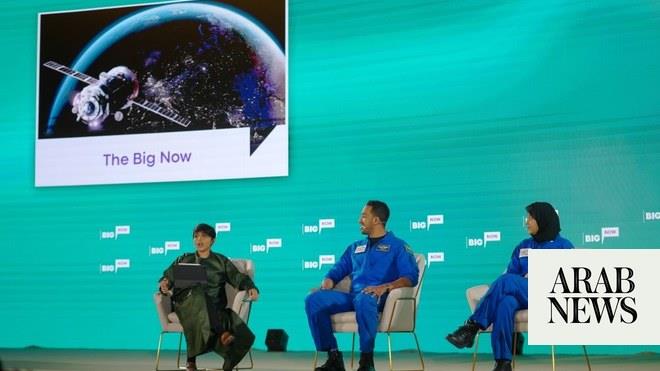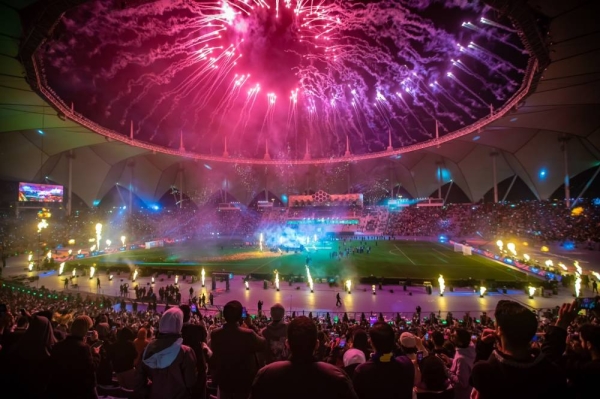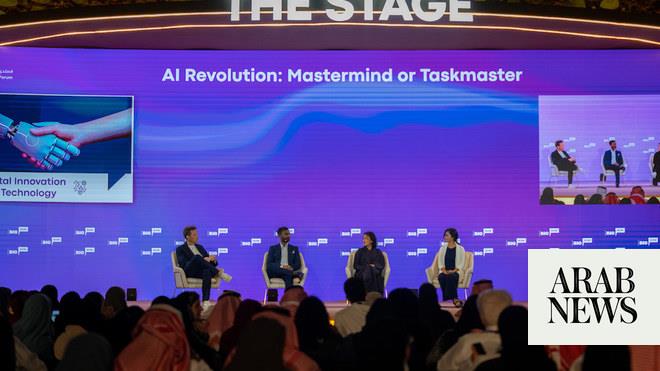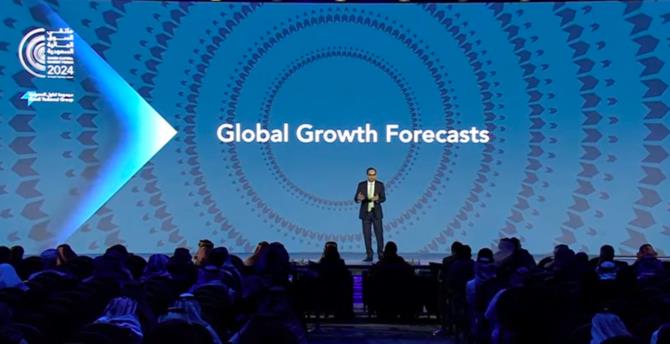
RIYADH: Saudi astronauts Rayyanah Barnawi and Ali Alqarni offered insights into their historic journey into space as part of a panel discussion during the Misk Global Forum in Diriyah on Wednesday.
The session, titled “Unlimited Ambition,” was moderated by Saudi aerospace engineer Mishaal Ashemimry.
It shed light on the Kingdom’s advances in space exploration and the professional opportunities that can be untapped in the space industry.
Barnawi, the Kingdom’s first female astronaut, said that physical fitness, psychological health, technical and scientific skills, and exploratory skills are key areas to consider before heading into space.
Describing the demanding training schedule in different countries, she said: “We were trained in Houston, which has an entire building consisting of the International Space Station; then California in SpaceX; then San Antonio, which has a gravity test … and then we moved to Japan to train on the Japanese module, and then Germany to train on the German module.”
Alqarni shared his thoughts on the night before leaving for the ISS. “It was my last night on Earth. It included a wide range of mixed emotions, and I was drinking my last coffee. I thought that this would be my last cup before I go.”
The astronauts said they each called their family before boarding the spacecraft and undertaking the three-hour preparations for takeoff.
“In a few minutes, day turned into night at the speed of a missile, and a breakthrough was made, reaching space within seven minutes,” Alqarni said.
Their first day in space included adjusting to living without gravity, and following a schedule that allowed them to carry out experiments from 7 a.m. until 7 p.m.
The duo were part of the Axion Mission 2 and worked on 14 experiments in microgravity during their eight-day stay aboard the ISS.
Barnawi, with a decade of experience in stem cell research, carried out experiments on human immune cells and their inflammatory response in a microgravity environment.
The experiments were affiliated with the country’s King Faisal Specialist Hospital and Research Center, in cooperation with the Saudi Space Commission. The aim was to determine the response of immune cells and the effects of some treatments on inflammatory conditions, understand the biological changes occurring in a microgravity environment, and the activity of genes in immune cells exposed to inflammation over time.
The experiments were conducted under the supervision of the research team led by the head of King Faisal’s Department of Molecules and Research Scientists.
Alqarni also had a busy research program that entailed exploring cloud-seeding techniques in a microgravity environment. In a reaction chamber, Alqarni combined salt crystals with moist air to see if water droplets would form.












